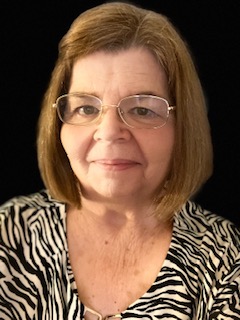By Gwen Lee
Nothing has changed and everything has changed. That’s the refrain often heard from NPEs* when they talk about their discoveries.
Nothing has changed. My husband still loves me. My children are still my children and they still love me. I haven’t lost my job. In fact, none of my co-workers even knows about my new status. I still go grocery shopping every Saturday. I haven’t had to skip any meals. I still enjoy the hobbies that I’ve enjoyed for many years. The sun rises every morning and sets in the evening, painting the sky with those beautiful colored sunsets I enjoy so much. The ocean waves still meet the sand at our beautiful beaches. So, how bad can this development be? Why do I find myself dissolving into tears every day?
Learning that you’re an NPE affects everyone differently. However, I’d bet that the vast majority of NPEs find themselves confronted with changes of some sort. What changed for me?
The earth shifted on its axis. Fortunately, this was only a temporary change. It would greatly trouble me to think that I was responsible for a permanent change in the way the world turned. How could I explain that to inquiring minds? However, that was the how I felt initially. My world turned upside down. There was confusion, which gave way to a realization that loaded me onto my emotional roller coaster, which eventually dropped me off at a place of curiosity.
My feelings about who I was underwent a big change. Suddenly I started asking myself, “Who am I, really?” I could look in the mirror and still see the same hair, the green eyes, the glasses, and the extra pounds I was always trying to lose. So I knew that people who knew me would look at me and think nothing had changed. They, of course, wouldn’t know what I was feeling inside. Maybe they made a trip to the snack bar and missed the curve ball that was pitched to me. (I swung and missed.) It felt as if my whole life had been a lie. I, simply, was not the person I’d always thought I was. I started ticking off my personality traits and physical characteristics on my fingers, examining each one to determine if it might have come from my biological father, whom I had never met.
My sense of my family and my place in it changed. I realized I had a lot to learn about my family history. I also wanted to learn as much as I could about my “new” family—the family of my bio dad.
I started dealing with this change by telling my close family members about my discovery. That meant phone calls to my sister and each of the two brothers I grew up with. It also called for conversations with my two sons and their wives. I left it up to them when and if they chose to tell my grandchildren. I knew I was imparting sensitive information but I felt as if this discovery directly affected them and their children. There was never any doubt in my mind about telling them. My family members all assured me that this news changed nothing about their feelings toward me.
I also knew now that the man that I grew up believing was my father, was not my father. That was another change. My birth certificate father was the only one of the three key players who was still alive. My mother and bio father had both passed. I’m a fairly strong believer that people do have a “right to know.” However, after wrestling with the decision for a bit, I chose not to share what I had learned with my birth certificate father. He and my mother had divorced when I was five years old, and I didn’t have a particularly close relationship with him. The reason for my decision not to tell him was that he was in the throes of dementia and very near the end of his life. If my mother had still been alive I know I would have had a lot more to grapple with. Was that a bit of luck for me? Maybe, but it also meant I would always have a lot of unanswered questions.
I’d been doing a lot of research since I got my DNA results and made my discovery. I’d also gotten some help from people who’d been doing this kind of research far longer than I had. A big change for me was that I now knew that instead of being the youngest of four siblings I was smack dab in the middle of seven siblings. The siblings that I grew up with were half, even though I’d never thought of them as halves instead of wholes. Now with six siblings, I still didn’t have any whole siblings.
I’d been successful in establishing communication with two cousins on my bio dad’s side. I gave all my contact information to one of these cousins and asked him to pass it along to my three “new” siblings, all half-sisters. He told me he did but he also advised me not to expect anything from them. They could not come to term with their father’s “indiscretion.” One sister did, eventually come around to reaching out to me. We live quite a distance from each other but we’ve become acquainted by texting and talking on the phone. I feel grateful for her kindness and friendship.
I like to think another change I’ve undergone is that I have become more understanding and empathetic toward people who are going through their own personal crises. I have learned a lot, not just about genealogy and DNA, but also about the turbulence of that emotional roller coaster that people find themselves on when they’re faced with this sort of life-changing event.
I’m still working on making my way through all these changes. Honestly, I don’t know if I’ll ever feel as if I have processed all the changes. I don’t know if I’ll ever get over the feeling that there was likely no relationship involved in the circumstances of my conception. I still have some work to do.
My NPE status is never far from the forefront of my mind. So, while I’m sitting watching one of those beautiful sunsets or doing some of the crocheting that I have always enjoyed doing, I’m often thinking about the ways my life has changed and working on strategies to avoid stepping onto that roller coaster.
*NPE: not parent expected, or nonparental event
Gwen Lee is a mother and grandmother of four. She and her husband, Don, have been married for 51 years. Lee has lived in Southern California her whole life, and she retired in 2020 from her profession as an administrative assistant. She enjoys reading and crafting, particularly crochet. Her email address is gwenlee84@gmail.com.


